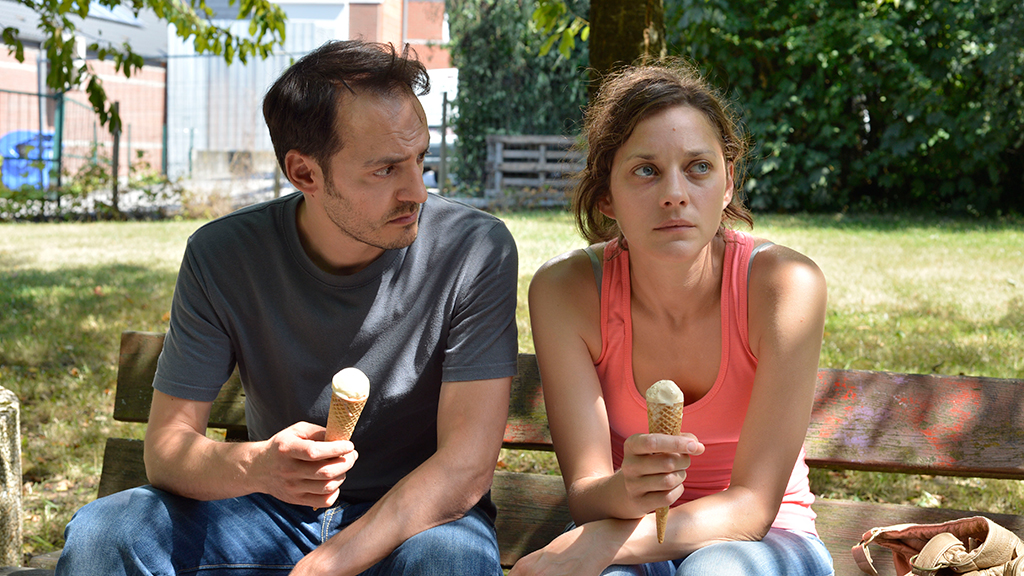Two Days One Night manages to be minimally excellent
 Supplied - Mongrel Media
Supplied - Mongrel MediaTwo Days One Night
Directed by: Jean-Pierre and Luc Dardenne
Written by: Jean-Pierre and Luc Dardenne
Starring: Marillon Cotillard, Fabrizio Rongione, Catherine Salee
Minimalism is hard to pull off in film. It would seem as though many directors feel naked without their smash-cuts, symphonic scores, and CGI. Jean-Pierre and Luc Dardenne, on the other hand, revel in simplicity and straightforwardness, and their work is a lovely change of pace for the moviegoer.
Their new film, Two Days, One Night follows Sandra (Marillon Cotillard), a woman whose 16 co-workers must vote either for her to stay on at her job, or for each of them to receive a bonus. The viewer is an observer of the life of one woman on one weekend, at an immensely significant emotional crossroads. The gravity of the vote is driven home again and again, each time in a more subtle way.
The cinematography is unadorned and unabashedly simple. The entire shot on a handheld camera, using only straight cuts, and the only non-vocal soundtrack is recorded from a car stereo. Despite all this, the viewer never feels as though the scene is empty. All the time the subtleties of the performances and the weight of the conversation instill an emotional connection with the viewer.
With little in the way of post-production, the movie’s array of excellent performances are allowed to shine through. First, Cotillard deserves to have the lone Oscar nomination for this film. Her character is immensely dynamic, ebbing and flowing with the world around her. She takes her relatively unadorned lines and make us truly feel for her character. Through the emotional highs and lows, Cotillard’s performance is always pitch-perfect, and never feels saccharine or construed. The same can be said for the supporting cast. Fabrizio Rongione’s turn as Manu, Sandra’s husband, is equal parts supportive and desperate for stability. Her 16 co-workers are, in turn, friendly (Catherine Salee), apologetic (Timur Magomedgadzhiev), and often conflicted (Alain Eloy). The entire cast of the movie plays their parts to absolute perfection, whether on the screen for an hour or only a few minutes.
The same can be said for the rest of the cast; the subtleties of their performances beautifully characterizing the relationships they have with the rest of the players. All of them are understated to the point where the viewer wouldn’t be shocked if they walked off the screen and onto the street. This pervasive sense of reality gives the film immense emotional weight. We put ourselves in the shoes of every character, and sharpens every feeling the film imparts.
Two Days, One Night is presented to the viewer matter-of-factly; we understand the intricacies of each character because they could be us. This is a film about everyday people, and the Dardenne brothers take full advantage of this. Viewers inject their own emotions into each character and the way they react. We see just how people will treat each other for money, and no emotional punches are pulled. This movie is spartan in terms of productions, but houses a cache of emotions so diverse that viewers cannot help but look past the onscreen minimalism and buy into the emotion of the movie.




